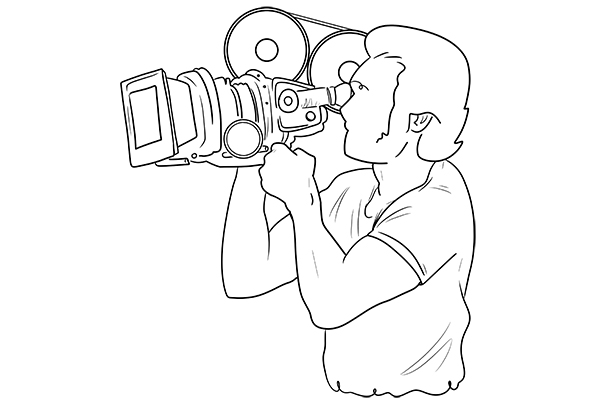UT student filmmakers weigh the risks of continuing productions during pandemic
March 24, 2021
After only spending one and a half semesters on campus Max Goldstein’s academic career in film came to a halt last year when the world closed down due to COVID-19.
“I feel robbed of my full college experience, which would have been some of the four greatest years of my life (that) are just going to become quarantine,” said Goldstein, a radio-television-film sophomore.
Since the World Health Organization declared COVID-19 a global pandemic on March 11, the entire film production experience has changed. Hollywood productions continue through rigorous testing and safety guidelines, but student and independent filmmakers have struggled to produce content with low budgets.
“Costs have gone up substantially because of liability issues and paying for all the extra protections to shoot,” RTF associate professor Alisa Perren said.
RTF sophomore Jack Speer has worked on a few shoots since the COVID-19 pandemic began, including a professional music video and other student productions. He said he has struggled with being fully prepared for on-set production because COVID-19 made it difficult to plan with his crew.
“We were on set and having to learn what we were doing (on the spot),” Speer said. “And so that difficulty of not having that in person preproduction time to plan everything out is where I’ve been seeing the biggest problem.”
Because film sets are mandating masks during production, Goldstein said he feels like he’s not able to properly communicate with his fellow crew members, which has dissuaded him from joining any productions.
“We all have to wear masks, and it’s much harder to pick up on social cues,” Goldstein said. “So I’ve made the choice not to engage in any projects recently.”
While other UT filmmakers have been struggling, UT alumnus David Garcia shot and completed his film “The Texas Chainsaw Massacre,” a remake of the original horror classic from 1974, thanks to a team of COVID-19 supervisors on set.
“There’s a whole team of people, that their only job is to keep everyone safe, and to keep everything clean, and to test everyone, so I don’t have to worry about that,” Garcia said. “I just want to recognize that because of those people, I was able to be creatively free to do what I wanted (and) needed to do.”
Even though many filmmakers at UT are struggling to secure a future path, Garcia said there are still productions being made and with the promise of the vaccine, Garcia said things are starting to look better.
“Spend some time self reflecting or working on writing (and) working on planning your next move for when everything opens up,” Garcia said. “Then, you can go out with a new screenplay or with a plan to make a short film or a feature film with your friends. It’s a great time to plan.”



